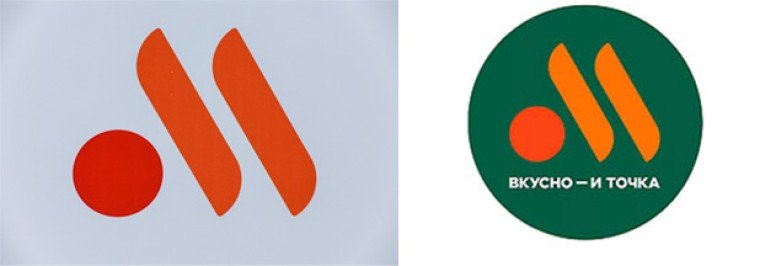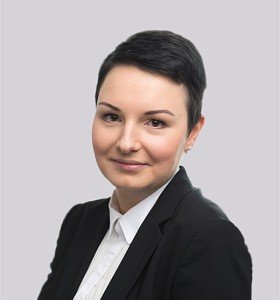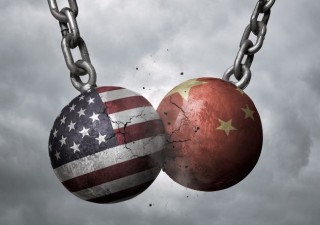Hope for the best, prepare for the worst: Consequences of winding business down for a brand
30 September 2022

During the last few months, some Western companies, experiencing external unfavourable factors, decided to reconsider their trading and other business activities in Russia, and in some cases announce total termination, winding down or suspension of business in Russia. Taking advantage of the moment, some market players, acting in bad faith, are attempting to register famous brands or their imitations in their own name without consent of the real owners of those brands. They might believe that in some cases their trademark applications may successfully pass the examination procedure and in case the famous brand is cited by the examiner they may attempt to cancel the cited trademark, for instance, based on non-use grounds.
The brand squatters have already filed at least 200 applications for designations identical or similar to the registered famous trademarks with the Russian Trademark Office (Rospatent) from the beginning of February 2022 to June, and this number will most likely be increasing. Of course, the mere filing of an application for a designation does not guarantee its registration as a trademark and each application will pass formal and substantive examination. At that, not all of the filed applications reach the stage of substantive examination of the applied designation. Some of such applications are filed without payment of the fee and if the fee is not paid within the prescribed period of time the application shall be considered withdrawn.
Sometimes applicants themselves withdraw applications filed by different reasons. For instance, after McDonald's announced winding down its business in Russia the company Russian Field – Logistics, which is part of the Ruspole Brands group specializing in producing canned vegetables, filed an application for registration of the "Uncle Vanya" trademark with Rospatent. The application for this designation was publicly discussed because it was a copycat of McDonald’s famous logo.

McDonald’s copycat logo
McDonald’s logo
However, a few days after filing the applicant withdrew the application and explained that it had been filed by mistake and the risk for McDonald's brand was eliminated at that time. It needs to be mentioned that, currently, the former official licensee of McDonald’s re-opened the former McDonald’s restaurants under the new name ‘Tasty And That’s It’ which is obviously very far from the famous trademark.

Tasty and that’s it logo
The above is a rare example of a problem being solved before it grew up into a big problem; in most cases the filed applications run through Rospatent’s examination, the outcome of which depends on many circumstances.
Under Russian law, Rospatent is obliged to accept and publish any application, regardless of whether it contains signs of bad faith or not. In the course of examination, it is established whether the claimed designation can be registered as a trademark or there exist any obstacles to the mark being accepted. In the case of filing an application for a designation, which reproduces or imitates a famous trademark belonging to another entity, the most obvious ground for refusal of registration of such designation could be existence of similar trademarks of that company enjoying protection in Russia with earlier priority in respect of similar goods and services. Another ground could be the possibility of misleading consumers as to the manufacturer of goods or service provider, in case the trademark is widely known to the Russian consumer, usually due to a long and intensive use on the Russian market.
However, it would be the wrong strategy to rely on Rospatent’s examination only. In the current circumstances, it is required that the brand owner takes a proactive approach to protect his rights and interests on the Russian market and defend his brands.
One of the efficient ways is to watch for newly filed applications in order to reveal bad faith filings timely. As mentioned above, Rospatent publishes all trademark applications and this information is publicly available. This means brand owners can prevent such applications from being registered by way of filing observation letters (so-called ‘informal oppositions’). The provisions of the Russian Civil Code provide that any person may file an observation letter (informal opposition) with Rospatent in respect of a published application, setting out arguments on the non-compliance of the applied designation with the legal requirements. The arguments set forth in the observation letter are to be taken into account by the examiner during examination of the applied designation.
Such an observation letter serves as an effective tool for drawing examiner’s attention to various grounds for refusing registration of a designation, including those that are not checked in the course of examination, and this is a good chance to express strong opposition against granting legal protection to the designation. For example, one may point out the similarity of the applied designation to a company name, another person’s right which had arisen in Russia before the priority date of the filed application, or indicate that the applied designation is identical or confusingly similar to the name of a person known in Russia at the filing date of the application (this argument may be relevant for fashion brands, as fashion houses often bear the names of their founders).
Of course, the arguments of the observation letter must not be purely declarative; it is advisable to support the arguments of the observation letter with documentary evidence by providing information (in relation to Russia) on protected means of individualization and other intellectual property subject-matters, the history of brand creation, the length of use of the mark on the market and the reputation established, the duration and intensity of use of the conflicting company name in relation to certain goods and services, etc.
This demonstrates that in order to protect the rights of trademark owners against unfair actions of other market participants trying to gain an unjustified advantage by parasitizing on the reputation and fame of others’ trademarks, it is necessary to take care of timely registration of the designation intended to mark the manufactured goods as a trademark.
It should be noted that Russia is a first-to-file country and the exclusive right to use a trademark, as a general rule, arises by virtue of the state registration of a trademark or by granting protection in accordance with the Madrid System of international registration of trademarks, and the priority of a trademark is established as of the date of filing.
Subject to availability of supporting documents an earlier convention or exhibition priority may also be established. Needless to say, that using a designation without registration as a trademark entails risks, in particular those associated with filing of a similar designation for registration by another person and possible subsequent registration of such trademark, which may ultimately lead to infringement of the trademark rights of that third party.
Some of brand owners are concerned about protection of IP rights in Russia and approach by the Russian Trademark Office with respect to foreign brands. In this regard it should be mentioned that even in the current complicated geopolitical situation Rospatent makes no distinction in the examination of applications by foreign or Russian applicants and is guided solely by the provisions of law when rendering its decisions. Despite the current sanctions policy against Russia and the counter-sanctions imposed by Russia in response to the actions of some foreign countries from the so-called “unfriendly” list of countries, the institute of intellectual property in this country continues to work effectively to protect the rights of intellectual property owners, regardless of what country they come from. With regard to trademarks, all statutory mechanisms for protection and enforcement of rights remain fully operational, as evidenced by the current practice in both administrative and judicial cases, reflecting the invariability of the legal approach and procedures for the enforcement and protection of rights and stable state of affairs in this connection.
For instance, when a Russian entrepreneur filed a trademark registration for the designation

Adventure Cats Logo
Rospatent cited the trademark CAT registered in the name of Caterpillar Inc. and, as a result, refused to grant legal protection to that designation as it was confusingly similar with the trademark of the famous U.S. company. In the meantime, the applicant appealed Rospatent’s decision with the IP Court arguing that the refusal to register the designation as a trademark violated the national interests of the Russian Federation (Case No. СИП-238/2022) because the owner of the opposing trademark was a U.S.-based company which, being registered in a country included in the list of so-called “unfriendly” countries, had allegedly suspended operation of Russian production. The court rejected this argument, noting that the circumstances in question could not serve as grounds for withdrawing opposition to a citation of a trademark (as a bar to registration) duly registered on the territory of the Russian Federation; moreover, no restrictive measures had been introduced in response to unfriendly actions by foreign countries in a given field.
In another example, on March 3, 2022, the commercial court of first instance dismissed the lawsuit of Entertainment One UK Ltd. filed against an entrepreneur selling counterfeit goods infringing copyright and trademarks to Peppa Pig and Daddy Pig characters on the grounds that the plaintiff was from an unfriendly country and, in his view, the very fact of the suit abused the right. However, in June the Court of Appeals reversed the decision of the first instance court and issued a new decision favourable to the UK rightholder.
The above examples demonstrate that IP rights in Russia are protected regardless of residence of the IP owner. At the same time, it should be clearly understood that the current political and economic situation both in Russia and globally is not a force majeure circumstance allowing businesses to “pause” or postpone necessary actions to secure and protect their intellectual property rights without causing damage to their rights. In particular, all statutory procedural deadlines within the framework of actions for registration and protection of trademark rights, including limitation periods, continue to be applied which in the context of a not particularly active position of business in protecting intellectual property rights may ultimately lead to the loss of intellectual property rights and the opportunity to enforce those rights.
The same relates to the use requirements adopted in Russia in accordance with which the use is obligatory and the failure to use the trademark within three years from the date of its registration continuously may entail its early termination. If the brand leaves the market the risk of termination of the trademark due to its non-use increases significantly since it could be difficult to provide relevant evidence of use of the trademark. It is also worth noting that the use of the registered mark by its owner, or alternatively as the case may be by its licensee or a third party under control of the brand owner would obviously help to increase its recognition and brand awareness among consumers.
Thus, the best approach to protect a trademark in the current economical and legal environment seems to be the following: timely registration of the trademark, use of the trademark in relation to the registered list of goods or services as per use requirements, monitoring of newly filed applications to identify identical or confusingly similar designations and taking possible actions to prevent their registration as trademarks.
- Ivy Choi









